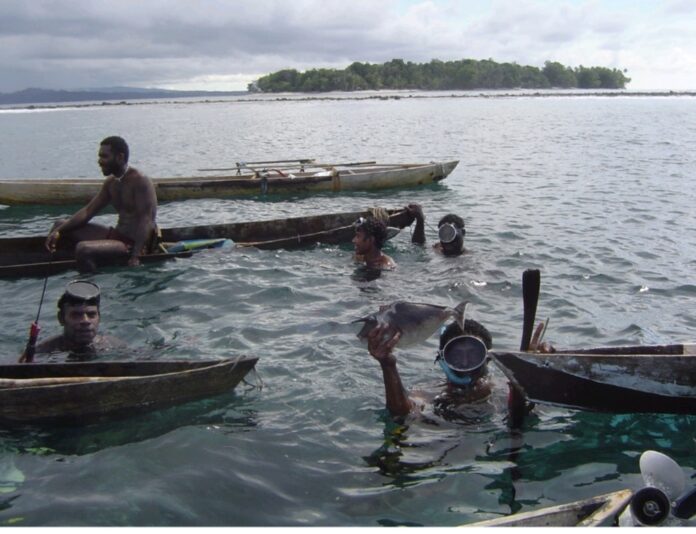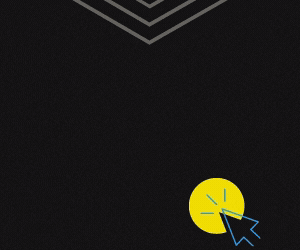Sea level rise is forcing Ahus Islanders to return to their Ancestral land on the main Manus Island.
Ahus islanders are originally from Mburpi, about 3 nautical miles away from the island. In the late 1800s, their ancestors moved to Ahus Island to stay close to the rich marine life there. However, now their descendants are making preparations to go back to their traditional land.
Loss of cultural status
Sea level rising not only erodes the coastline, but also culture. on Ahus Island in Manus Province the haus boi (clan’s sacred house for men) is under threat of being lost. Land is needed to maintain the culture and culture is an identity of a people in the traditional Melanesian society in the Pacific region.
One of the clans on Ahus Island has become victim after the rising sea washed away the clan’s land. “We had to move our haus boi three times already since the 1980s because the sea was taking away the land, an Ahusan Islander Otto Pohonhellan says. “The latest move was 10 years ago. Now we have no land and we can’t build a haus boi. Today we have no haus boi and we feel insignificant to the island culture”.
“The haus boi is the symbol of our clan’s cultural pride. In this house our clan leaders mobilize our young men of the clan to pass on our traditional knowledge and skills and also to discuss issues and plans to address these issues. Today there is no haus boi which means no symbol of our clan. Other clans have their haus boi and we feel irrelevant because no haus boi.”
“So our hope now is to return to our ancestral land and to build a permanent haus boi there”.
Relocation hiccups
Councilor Michael Chongohan is also concern for his people and is advocating for his Islanders to return back to their ancestral land. November is approaching and Ahus islanders are once again preparing for the next King Tide. It has been too many Novembers. It is time to return to higher ground.
Mr. Chongohan said that “due to the plight of my people, I’m adamant to relocate the islanders back to Mbupi. But then we have problems both with the people who are now residing on our ancestral land and also amongst ourselves”.
He said that “just like our ancestors who came to Ahus many years ago, some of our people now residing at Mburpi their ancestors also came and settle there when our ancestral land was left vacant. Also not all our ancestors migrated to Ahus Island. Some did stay back and so we have distant relatives still there”.
“But not many of the ancestors remained and since that the land was huge, other people further inland also came and settled on our land. So they stayed with our distant relatives and worked together forming a new community … but the good thing is that the history of our migration has been passed down through generations orally both on the island and on Mbupi. “Not only history been passed orally. We also have documents. We have an old survey map of our land on Burpi that was surveyed in the 1900s by the old German Colonial Government so both communities know that Mburpi land belongs to us. And any survey map authorized by the Colonial Government is now recognized by the Independent State of Papua New Guinea. That now confirms that we are the legitimate Land Owners”.
“It’s just that our lifestyle and culture has changed. They have settled too long, made gardens, plant fruit trees, plant sago and their culture is associated with the jungle. And just like we were brought up on the island by going fishing and our culture is associated with the sea.”
Chongohan said that it is not that our ancestors migrated to the Island and we never went back to our ancestral land. “We go back from time to time to our ancestral land but not to live there. We just go there to trade for garden food with fish with the people on the mainland and return. We also buy canoes there as they are good canoe makers. They make good canoes from the Mon tree (scientific name Dracontomelon Dao). This tree is excellent to make canoe”.
“So to resettle there, we just have to rebuild and strengthen our family network. Not just a day’s visit to do barter exchange or to sell our fish at the market there to make money but do customary obligations like helping them with bride price etc. That is a good way to resettle there. Since that they are our family, they will help us resettle.”
“Another thing is that our own Islanders are also reluctant to move back to the mainland and I don’t blame them for that. They have been living on the island since their ancestors settled. Their way of life is fishing … basically a life surrounded by the sea. If they move to the mainland, then they have to adapt to living in the jungles. This means learning how to make gardens, make sago and hunting in the jungle. It now boils down to individual families and clans. How they want to move back to our ancestral land”.
“We have discussed our relocation plan with The Provincial Government and they are supportive but they want us to take the lead first before they can come in to assist”.
“Another thing is there are many permanent infrastructure developments on the Island. Islanders have built permanent houses; we have built large permanent classrooms for our school. We built a huge church. And to resettle back on our ancestral land is like we will be abandoning these facilities. And to resettle on our ancestral land is we will have to start from scratch and build these entire infrastructures. It will be very expensive,” Mr. Chongohan says.
Meanwhile a community leader on Mburpi wanting to remain anonymous said, “Yes the issues on climate change is real but then not all clans on Ahus Island own land on Mburpi. Maybe only two clans have land. The current population on Ahus is frighteningly huge and the land on Mbupi is small and will be not enough for all of them to resettle. Besides there will be many social problems leading to law and order issues if the whole Islanders move to Mbupi. They will have conflict with the people now residing there.”
The Leader said “It will be a huge challenge to resettle on the mainland but then climate change is real and all stakeholders including the Ahus Islanders, people on Burpi and the local Governments need to work together to address the resettlement exercise caused by climate changes”.
Former Member of the National Parliament Manus (MP from 2012-2017) Ronny Knight said that Provincial Governments were willing to help in the relocation exercise.” But it’s the people from both sides who are delaying the exercise. They are all relatives and they have to work together to address the resettlement exercise to address the effects of climate change that is causing sea level to rise”.
Meanwhile Climate Change Development Authority Project Manager Frank Alkam said that they are aware of Ahus Islanders relocation. “But we can’t intervene because it involves land issue which is sensitive in Melanesian Society. The good thing is the Provincial Government is also aware and willing to assist.”
Mr Alkam said that such relocation exercise will need Ahus Islanders to have their own adaptation plan to survive in a jungle environment. “They also have to prepare to adapt to their new community’s daily lifestyle. So it now depends on any individual family on Ahus to make decisions to relocate to Mburpi. If they are serious to avoid the effects of rising sea, definitely they will adapt to their new environment on Mburpi.”


